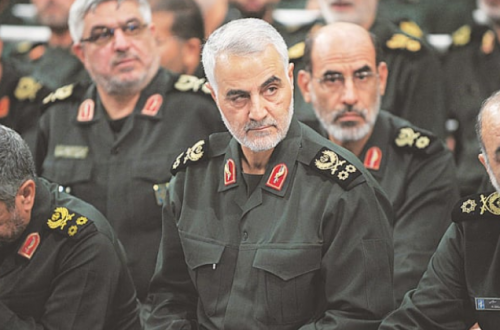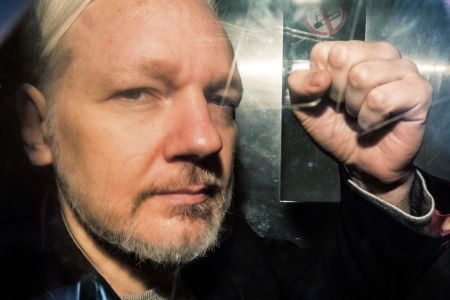This is a guest post by Muddassar Ahmed
Last week’s Sunday Telegraph claimed to uncover a conspiracy of British Muslims led by Baroness Sayeeda Warsi, to infiltrate Whitehall and impose a radical Islamist agenda in the heart of the government. The article by Andrew Gilligan identifies me and several other members of the Cross Government Working Group on Anti-Muslim Hatred as individuals with “links” to extremist groups. It also specifically links me with the Muslim Public Affairs Committee UK (MPACUK) and with Tablighi Jamaat, a conservative Muslim movement.
The assertion that I am linked to such groups is akin to overshadowing Peter Mandelson’s current politics with his former membership of the Young Communists League; or describing Matthew Collins’ anti-fascist campaigning as a Trojan Horse for the ideas generated as a former member of the National Front and BNP. That’s to say Gilligan’s claims are a lazily compiled reflection of a distant past that I have long evolved from and a wilful exercise in skimming over the many years of work I have dedicated to combat all forms of bigotry. The sort of work I need journalistic support to help achieve, as I have received previously from senior executives and editors at The Telegraph itself, not lazy journalistic smear as has so regretfully been the case here.
Coincidentally, I described my brief flirtation with MPAC, during a 12-month period over 10 years ago, in the Huffington Post before Gilligan’s piece was published. The article explains that I left MPAC because I soon disagreed with the group on pretty much everything: its interpretation of politics, its strategy and tactics, and its vision. Essentially, like young people who experiment with political activism and want to change the world for the better, my thinking evolved. I quickly moved on, working tirelessly to bring communities together on the issues of national security, immigration, and opposing all forms of bigotry including misogyny, anti-Semitism, anti-Muslim hatred and homophobia.
On community relations, I serve as a patron alongside Boris Johnson on the London Faiths Forum, which brings together faith communities in London. I’ve worked with the Edmund de Rothschild Foundation too bring together Jewish and Muslim entrepreneurs. I travelled to Paris after the Charlie Hebdo attacks to help bring together Jewish and Muslim communities, countering both anti-Semitism and anti-Muslim hatred. And I’ve regularly convened Muslim thought-leaders to create an inclusive vision of Islam that eliminates hatred and discrimination against people based on their ethnicity, gender and sexuality.
On national security, I have attended two NATO Heads of State summits, authored a report on European institutions and security for the Atlantic Council, where I advocated the need for strong pan-European institutional, economic and social structures for the future security of Europe, and worked with the UK government on countering violent extremism in Europe.
My MPAC experience helped me realise the folly of an “us and them” approach. MPAC’s approach was very much a reactionary one, where intense lobbying, condemnation and exposés, was meant to bring about some form of desired change that would benefit British Muslims. It never did and it is what led me to keep searching. At times, their activism created further animosity and compounded differences to an irreconcilable extent, after which activism itself became a vein effort. I found that a third way – meaningful engagement with the “other” – needed to be at the centre of social action if the notion of “other” was ever to disappear. I stopped publicly campaigning against Stephen Timms MP over the Iraq war, and not only saw immediate benefits of engaging with him, but now count him as a friend. While there is always a legitimate place for dissent and criticism, to effect change there must simultaneously be a willingness to listen and engage. By doing so, I found that both sides could experience a positive transformation.
Engagement, of course, doesn’t mean endorsement. Engaging a party you disagree with does not necessarily legitimise them, but can offer an opportunity for dialogue that could open minds. For me, engagement is about creating positive change to create a more inclusive society.
This is why I chose to voluntarily assist the Riverine Centre, otherwise known as the “Mega Mosque,” a proposed development by the Tableeghi Jamaat a stone’s throw away from where I grew up. In many ways, Tableeghi Jamaat represents the antithesis of the type of engagement I stand for, and even my views about Islam. And they are very much an isolationist outfit, one that emphasises spirituality above all else. But despite their conservative views, counter-terrorism experts like French expert Oliver Roy judge the Tableeghi Jamaat to be apolitical and law-abiding and former CIA official, Vice-Chairman of the US National Intelligence Council and specialist on Islamic extremism, Graham Fuller describe them as a “peaceful and apolitical preaching-to-the-people movement.”
When Tableeghi Jamaat approached me to help them three years ago, I made it clear that their proposed facilities be open to female worshippers and the wider community to truly work, a view justified by my understanding of Islam. Three years later when I saw their plans included one of the largest spaces for female worship in the UK, I agreed to help them with the inquiry into their planning application. For me, this was the way to defeat bigotry on all sides


